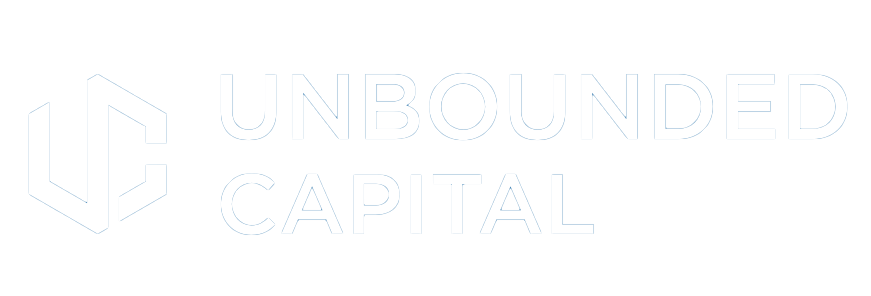The following is a written transcript of our five part video series “Short BTC, Long Bitcoin (BSV)”. The video version can be found on our YouTube channel.
What is Bitcoin? Part I
Most investors learned of Bitcoin during its 2017 bull market, when BTC moved from around $3,000 per coin to $20,000 per coin in a matter of months. After this, it became a mainstay topic of discussion on popular investment outlets like CNBC. The discussion surrounding the fundamental value proposition on these outlets typically included some version of the idea of “digital gold”. The digital gold value proposition suggests that bitcoin is the world’s first scarce digital asset. Because it is both scarce and digital, it is able to maintain value which can be sent long distances nearly instantly. It’s digital nature also allows for self custodianship, unlike many other assets which necessarily rely on trusted third party financial institutions.
While at Unbounded Capital, we find these properties compelling, we generally see this digital gold vision of bitcoin as needlessly limited in scope. “Digital gold” is the result of a neutered Bitcoin that can no longer achieve its more technically demanding initial aim of “A Peer-to-Peer Electronic Cash System”, the explicit goal described in the original bitcoin whitepaper authored by it’s creator, Satoshi Nakamoto. CNBC segments and curious-but-time-constrained investors rarely explore the fundamental innovations of Bitcoin, the innovations that allow these value propositions to exist. Once one does, they find a technology that will enable far more than placing one’s wealth outside the reach of governments and financial institutions. In finding that the initial technology has much more potential than digital gold, we expect most investors will agree that the sacrifices made to try and keep BTC outside of the influence of governments were far too costly.
So, what is Bitcoin? The conventional explanation goes like this. Bitcoin is a digital asset with hard-coded scarcity, sort of like digital gold. Ownership of Bitcoin is tracked through a data structure called a blockchain. The blockchain contains the complete transaction history of Bitcoin. These transactions are grouped into individual chunks called blocks. Bitcoin miners, or computers which maintain the blockchain, compete to check that new transactions are valid and add them into the next block. A valid block must contain all valid transactions as well as the solution to a very hard math problem which can only be solved by brute-force randomness. The first miner to solve this problem and create a valid block gets the block’s transaction fees and a batch of newly minted bitcoins called the block reward. This mining process, where new blocks are added to the chain, is called proof of work. The result of all of this is the world’s first digital currency.
At Unbounded Capital, we feel this description misses the point, even if it is mostly accurate. At its core, we don’t see Bitcoin as just a currency, but as a groundbreaking innovation in databases. The revolutionary properties of this new database, the Bitcoin blockchain, are its public nature, and immutability.
Bitcoin is Public
Bitcoin is the first successful public database. Why is this important? First, the contents are fully visible and auditable, although optionally encrypted. This transparency is a key to Bitcoin’s security and value. When data is public, it’s much easier for multiple parties to coordinate. This availability of data is a reason that Bitcoin transaction fees are so low, particularly on BSV. All of the necessary data is in one place. We think it will become increasingly difficult for businesses wanting to keep data isolated to compete with businesses and applications leveraging transparent data.
Bitcoin is Operated Competitively
Another key benefit of Bitcoin’s public nature is the ability to drive competition. Unlike existing databases which have a designated operator, Oracle of AWS for example, participation in the operation of Bitcoin’s database is permissionless. This means that anyone can compete to serve this role and reap the benefits if they are able to do so more efficiently. This competition occurs without users needing to know. Users can rely on the economics of the system to know that no matter who is maintaining the database at a given moment, they will be incentivized to do so honestly.
Bitcoin is Immutable
Data included in the Bitcoin database is effectively immutable. The data cannot be altered or deleted. --- Why? --- Because the economics of Bitcoin make --- changing or deleting data extremely costly such that there would --- virtually never be incentive to do so. --- This makes data stored on bitcoin different than all other digital data which is cheaply and easily altered. Because digital data is so easily altered, conventions to ensure the accuracy of important digital data have been implemented. These systems are less trustworthy than bitcoin in serving this function. Take an industry involved in securities trading for example. Securities traders are legally required to keep unchangeable copies of their data. When they leverage PRIVATE immutable databases, they can still act dishonestly if they simply keep multiple copies: one with honest data and one with dishonest data. If they were legally required to use bitcoin’s PUBLIC immutable database, they would not have this opportunity for dishonesty. Many people in BSV refer to the Bitcoin database as a record of truth. It’s public nature and immutability are why.

